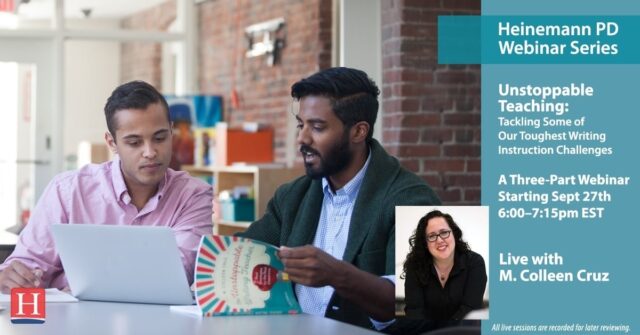
While good readers are able to meet state reading standards and often achieve at the highest levels on standardized tests, they can be helped to become more thoughtful readers. Below, Carol Jago explains the bad habits that good readers often engage in:
While good readers are able to meet state reading standards and often achieve at the highest levels on standardized tests, they can be helped to become more thoughtful readers. Below, Carol Jago explains the bad habits that good readers often engage in:
- Value speed over reflection. They seldom pause between books to think about what they have read, reaching for the next one with hardly an intake of breath.
- Skip anything they find boring. Unlike inexpert readers, these accomplished readers feel free to jump past anything that interrupts the flow of a story. They skim descriptive passages and ignore altogether embedded poetry or quotations.
- Care more about their personal reading than the assigned reading. We've all known avid readers who have performed very poorly in high school, preferring to prop a book inside their textbook and simply read their way through the school day.
- Declare a text they do not care for as "boring" with great authority. This can be disruptive because classmates who have hardly read a word of A Tale of Two Cities find support in their antipathy for Dickens from a student who did not enjoy the novel but nevertheless finished in over the weekend.
- Write poorly and spell carelessly. In their desire to get back to their book, these readers often rush through writing assignments. Wide reading has given them knowledge of many things, and so avid readers are able to dash something off that passes muster, but they are reluctant to spend the kind of time revising that would actually make the quality of their writing match the quality of their thinking.
- Become mired in a genre, reading on particular kind of book for a very long time. Teenagers can easily wallow in John Greene novels. This is not to criticize compelling narratives like The Fault in Our Stars and Looking for Alaska. Rather, to suggest that a teacher might want to nudge some John Greene fans toward a wider range of authors, setting, and genres. His books will always be there as comfort food.
The best thing about being a competent, confident, and compulsive reader is that going back to reread a book isn't a problem. Constant readers always seem to find time where others find none.
•••
Learn more about The Book in Question at Heinemann.com
 Follow us on Instagram @heinemannpub to stay up to date on the latest books, your favorite authors, and upcoming events!
Follow us on Instagram @heinemannpub to stay up to date on the latest books, your favorite authors, and upcoming events!
 Carol Jago has taught English in middle and high school for 32 years and is associate director of the California Reading and Literature Project at UCLA. She served as president of NCTE and editor of California English.
Carol Jago has taught English in middle and high school for 32 years and is associate director of the California Reading and Literature Project at UCLA. She served as president of NCTE and editor of California English.
Carol has published many books with Heinemann including With Rigor for All: Meeting Standards for Reading Literature; Papers, Papers, Papers; Classics in the Classroom; and Cohesive Writing: Why Concept Is Not Enough.
In 2015 Carol was awarded the International Literacy Association’s Adolescent Literacy Thought Leader Award and in 2016 the CEL Exemplary Leadership Award. She has been named by the U.S. Department of Education to serve on the National Assessment Governing Board overseeing the NAEP assessments.
Follow Carol on Twitter @CarolJago



